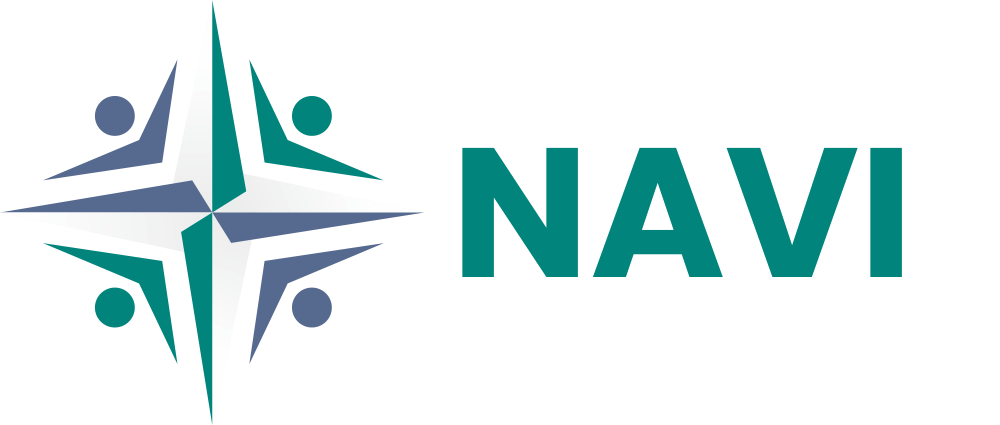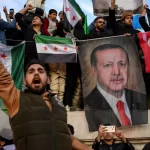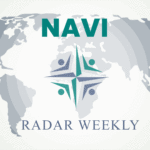Subscribe to NAVI Radar Weekly here
Focus Point: Regional Security- Transatlantic Security/NATO
Stand Up of Allied Reaction Force Marks A New Era for NATO| NATO
NATO-SHAPE| 01.07.2024
A ceremony was held on July 1 st , 2024, in Solbiate Olona, Italy to officially stand-up NATO’s new Allied Reaction Force (ARF) marking a significant milestone in enhancing NATO’s collective defence.
The ARF replaces the NATO Response Force (NRF). This development is crucial for the deterrence and defence of the Euro-Atlantic area, ensuring NATO is prepared to respond swiftly and effectively to any threat in an evolving security environment.
Led by the NATO Rapid Deployable Corps Italy (NRDC-ITA) 
The ARF forms a critical component of the new NATO Force Model, which supports the Concept for the Deterrence and Defence of the Euro-Atlantic Area (DDA) and is designed to be complementary to NATO’s Regional Plans agreed on during the Vilnius summit. Read more…
Learn more about ARF here https://lnkd.in/ejxWQ76U
Focus Point: Regional Security- Transatlantic Security/NATO
Denmark chairs the inaugural meeting of NATO’s Transatlantic Quantum Community | NATO
NATO |02.07.2024
On Tuesday (2 July 2024) the Transatlantic Quantum Community (TQC) held its inaugural virtual meeting in Brussels. Last September, NATO Secretary General Jens Stoltenberg called for the development of a dedicated network which would enhance Allied cooperation and harness the benefits of quantum technologies to strengthen deterrence and defence. Since that point, NATO’s Quantum Technologies Strategy was agreed and the Alliance’s International Staff collaborated with NATO members to establish the Community.
The Transatlantic Quantum Community is Allied led but participation is voluntary. More than half of Allies are already involved, including the United States, Canada, France, Italy and Czechia and the initiative is championed by Denmark as the first national chair. The Community will bring together quantum experts from national governments, industry, academia, funding bodies, and research institutions and will help encourage Allied innovation enabling NATO protect its technological edge.
The role of quantum technologies in the security environment is growing and the Community will help NATO engage with critical issues. These include funding and technology challenges, talent development and partnership opportunities.
The Transatlantic Quantum Community’s first annual plenary is expected to take place this autumn.
Focus Point: Regional Security- Transatlantic Security/NATO
What NATO Means to the World| FA
Jens Stoltenberg| 03.07.2024
Putin shows no intention of ending this war any time soon, and he is increasingly aligned with other authoritarian powers, including China, that wish to see the United States fail, Europe fracture, and NATO falter. This shows that in today’s world, security is not a regional matter but a global one. Europe’s security affects Asia, and Asia’s security affects Europe. Read more…
Focus Point: Regional Security- Transatlantic Security/European Security
Russia: Statement by High Representative on the visit of Prime Minister Orbán to Moscow |The EU-EEAS
EEAS | 05.07.2024
Prime Minister Viktor Orbán’s visit to Moscow takes place, exclusively, in the framework of the bilateral relations between Hungary and Russia.
Hungary is now the EU Member State serving the rotating presidency of the Council until 31 December 2024. That does not entail any external representation of the Union which is responsibility of the President of the European Council at the Head of State or Government level and of the High Representative of the Union for Foreign Affairs and Security Policy at Ministerial level.
Prime Minister Orbán has not received any mandate from the EU Council to visit Moscow. The EU position on Russia’s war of aggression against Ukraine is reflected in many European Council conclusions. That position excludes official contacts between the EU and President Putin. The Hungarian Prime Minister is thus not representing the EU in any form.
In addition, it is worth recalling that President Putin has been indicted by the International Criminal Court and an arrest warrant released for his role in relation to the forced deportation of children from Ukraine to Russia. Read more…
Focus Point: Regional Security- Transatlantic Security/NATO
NATO Secretary General: “Our most urgent task at the Summit will be support to Ukraine | NATO
NATO |05.07.2024
On Friday (5 July 2024), Secretary General Jens Stoltenberg previewed next week’s Washington Summit, stressing that support to Ukraine will be NATO’s “most urgent task”.
“I expect heads of state and government will agree a substantial package for Ukraine,” said Mr Stoltenberg. “NATO will take over the coordination and provision of most international security assistance,” with a command led by a three-star general and several hundred personnel working at at NATO headquarters in Germany and at logistical nodes in the eastern part of the Alliance, he said. He added that Allies will agree a financial pledge for Ukraine, and that he also expects more immediate military support to Ukraine; more bilateral security agreements; and work on deepened military interoperability. The Secretary General said that all of these elements “constitute a bridge to NATO membership and a very strong package for Ukraine at the Summit,” adding: “Ukraine is moving closer to NATO”. Read more…
Focus Point: Security and Defense Policy- Russia-Ukraine War
NATO to Expand Defense Tech, Intelligence Sharing with Ukraine| Bloomberg
Mark Bergen| 06.07.2024 | Subscription needed
Recent Russian advances have led Ukraine’s allies to loosen restrictions on weapons they provide, with the US and Germany authorizing attacks on Russian territory for the first time. Such strikes had previously been forbidden for fear of antagonizing the country with the biggest nuclear arsenal.
An agreement that introduces new frameworks for sharing information, including on supply chains for drones, will be finalized in time for the alliance’s July summit in Washington, according to van Weel.
One goal of the program is to help make Ukraine a large-scale tech provider once the war ends. NATO also wants to replicate some of the rapid tech adoption and deployment seen in Ukraine since the war started, van Weel said.
Van Weel spoke at the inaugural Defense Innovators Forum, a conference that featured representatives from Kyiv, Brussels and the Pentagon, as well as dozens of startups building battlefield equipment. Read more…
Focus Point: Regional Security- Transatlantic Security/NATO
Pre-Summit polling results show strong support for NATO and increased defence spending | NATO
NATO | 05.07.2024
Ahead of the 2024 NATO Summit in Washington, NATO commissioned a public opinion survey across all 32 NATO member countries. The survey asked over 30,000 respondents to share their opinions in several areas, including support for their country’s NATO membership, commitment to collective defence of their country’s Allies and agreement with increased defence spending. Overall, support for NATO remains strong, as does support for increased defence spending.
A majority of Allied respondents continue to agree that their country should defend an Ally if attacked (63 per cent), and 70 per cent would vote for their country to remain a NATO member in a referendum.
Support for maintaining or increasing defence spending stands at 76 per cent. Support for increased defence spending continues to rise, and is the most frequent spending preference response (41 per cent).
Favourability towards Russia and China remains low, with most Allied respondents holding unfavourable views of Russia (62 per cent) and China (48 per cent).
As in previous pre-summit surveys, questions were included regarding Russia’s war against Ukraine. Around two thirds of Allied respondents consider Russia’s war against Ukraine to have affected the safety and security of their country (63 per cent). There is substantial majority agreement among respondents that their country should continue to provide support to Ukraine (61 per cent). Read more…
Thank you very much for reading.
The NAVI Research Institute is the research division of NATO Veterans Initiative - NAVI that provides a unique perspective to transatlantic leaders and societies on peace and security through the lens of NATO's founding principles of rule of law, democracy, human rights, and individual liberties. The NAVI Research Institute was officially established by the NAVI Board on July 16th, 2023.

![NAVI-PROJE-[Recovered] Radar Weekly](https://nato-veterans.org/wp-content/uploads/2024/05/NAVI-PROJE-Recovered-696x392.gif)

